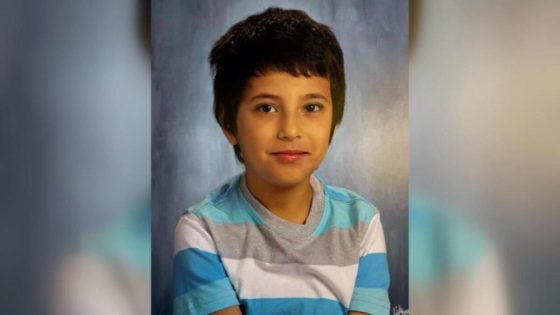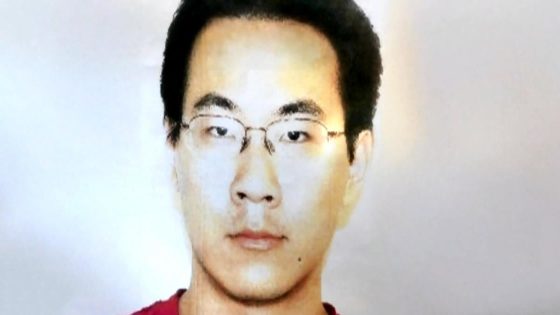In a tragic turn of events that seems to blur the lines between love and despair, Arnoldo Jimenez’s life took a dark turn just hours after he exchanged vows with Estrella Carrera. It was May 12, 2012, in Burbank, Illinois—a day that should have marked new beginnings instead became the backdrop for a horrifying crime. Recently wed, Estrella was found lifeless in her apartment bathtub, still clad in the silver cocktail dress she wore on her wedding day. Just a moment in time, yet it felt like a rich tapestry woven with threads of joy turned to sorrow, betrayal, and loss.
- Arnoldo Jimenez captured in Mexico
- Charged with wife's murder after wedding
- Carnage occurred in 2012, two days later
- FBI included him on most wanted list
- History of domestic violence reported
- Carrera's family disapproved of their relationship
Estrella’s family, worried when she didn’t pick up her two children the day after their seemingly blissful wedding—a secret ceremony at Chicago City Hall—requested a wellness check. Their concern escalated when they learned she had been found dead. Hours before her death, her husband, bloodied and frantic, had called his sister, tearfully recounting a “bad fight.” According to reports, he mentioned leaving her bleeding and then abruptly ended the call, failing to respond to any subsequent attempts by his family to reach him. It was almost as if he vanished into thin air, leaving nothing but pain in his wake.
Fast forward to the present, after years of being a fugitive, Jimenez was apprehended on a Thursday in Monterrey, Mexico. At 42 years old, he now faces extradition back to the U.S., where authorities have pursued him since he became one of the FBI’s 10 Most Wanted fugitives in 2019 for his alleged role in his wife’s murder. The charges against him include first-degree murder, and the evidence collected over the years paints a haunting picture of domestic violence intertwined with impending tragedy.
When Estrella’s lifeless body was discovered, authorities detailed the grim circumstances surrounding her death. Reports indicated that Jimenez was suspected of stabbing her in his 2006 Maserati before dragging her body into the bathtub in their shared apartment. While the investigation quickly progressed, the chilling realization of her fate began to ripple through the community, raising questions about what drove a husband to turn against his bride mere hours into their marriage.
Witnesses from the past divulged that Jimenez had a history of domestic violence. Family members of Estrella recounted troubling incidents, describing him as possessive and jealous. Her sister, recalling previous instances where Estrella bore bruises from Jimenez’s hands, lamented, “I just don’t understand why she married him.” Their disapproval didn’t stem from just one isolated incident; Estrella’s family had voiced concerns about Jimenez even before the wedding. His prior arrest for domestic violence, a ghost from the past lurking quietly, contrasted sharply with the joyous occasion of their marriage.
The case became a saga of violence and loss, drawing in the FBI as they sought to bring Jimenez to justice. The FBI added him to their top 10 most wanted list, highlighting the severity of the allegations and their commitment to finding him. In the years that followed, authorities speculated that his brother may have helped him flee to Mexico, resulting in years of evasion from justice.
With Jimenez’s arrest, a chapter in this grim tale closes, yet the broader implications of such tragedies linger. Estrella’s family reignited the call for awareness around domestic violence, emphasizing that signs of abuse must never be overlooked, even when love is professed. They faced a twin burden—grieving Estrella while confronting the systemic factors that allowed her death to occur.
As the legal machinery begins to churn in response to Jimenez’s extradition, many are left wondering what justice will look like in this case. How will Estrella’s story unfold in a courtroom, and will it serve as a catalyst for change and awareness in addressing domestic violence? The community holds its breath, as this tragic reminder of love gone awry serves as a rallying cry for survivors and advocates alike.
Moving forward, the case stands at a critical juncture, reflecting the urgent need for advocacy and healing in the face of heart-wrenching loss. The shocking narrative of Estrella Carrera and Arnoldo Jimenez serves not just as a sobering reminder but as a plea for vigilance and compassion in recognizing the signs of danger that may lurk behind closed doors, urging society to foster a climate where love remains a source of strength, rather than a pathway to despair.

































